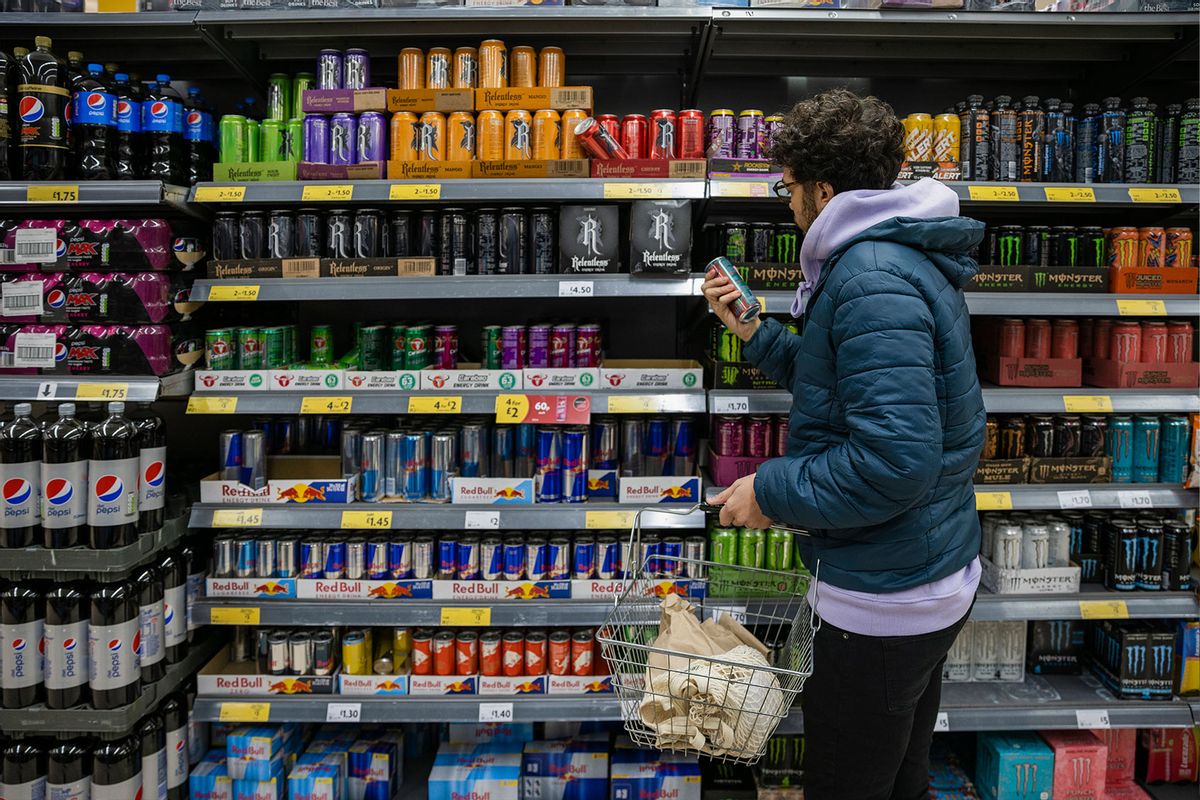“Don’t talk to me until I’ve had my coffee” has been a banal saying on mugs and t-shirts for a very long time, but what are we actually doing to our bodies when we consume caffeine? If you’re sipping a relatively small mug of joe at home, it may not seem like it’s worth considering, but in a world of triple-shot coffees and hyper-charged energy drinks, it’s increasingly important to understand the often hidden dangers of caffeine.
This was tragically illustrated in the September 2022 death of college student Sarah Katz, whose family alleges in a recent lawsuit that Katz, who had a heart condition, died after drinking a heavily caffeinated energy drink at Panera Bread.
According to the suit, Katz’s parents suggest that Sarah — who actively managed the symptoms of her heart condition by limiting her caffeine intake — may have believed the chain’s “charged lemonade,” which is marketed as plant-based and “clean,” was a regular lemonade, when in fact it contains 390 milligrams of caffeine, which is more caffeine than some energy drinks. As reported by Eva Rothenberg of CNN, the charged lemonade also includes sugar, coffee extract and guarana extract.
As Salon Food recently reported, Panera's menu, website and app have been updated in recent days to better, and more clearly, reflect the true caffeine content in these lemonades. Salon Food reached out to the FDA for comment on the lawsuit, as well as reports that the agency is “gathering information” on the case, and representative Janell Goodwin provided this emailed statement: “The FDA is saddened to hear of the passing of a consumer and as always, takes seriously reports of illnesses or injury from regulated products. The agency monitors the marketplace of FDA-regulated products and takes action when necessary.”
But the question remains: How much caffeine is too much caffeine for the average adult?
According to the FDA's own guidelines, about 400 milligrams of caffeine is the maximum amount a "healthy adult” should consume in a day (as a reminder, Panera’s large charged lemonade contains 390 milligrams). The guidance for maximum caffeine consumption fluctuates considerably depending on certain health issues, like heart conditions. Others who should generally avoid caffeine are children, people taking anti-anxiety medications, pregnant or breastfeeding people and people with heart disease or high blood pressure, as per the Cleveland Clinic.
The FDA also warns that beyond the 400-milligram threshold may be “dangerous, negative effects.” These could include insomnia, nervousness, restlessness, nausea and increased heart rate; larger amounts can result in headache, anxiety, chest pain and, in serious cases, death. It is possible to overdose from caffeine, especially when consumed in the form of concentrated caffeine products like energy shots and energy drinks. Caffeine does occur naturally in many ingredients, but can also be added as an additional ingredient to certain foods or beverages often marketed as “energy-boosting.”
For some, morning coffee is a mere component of their daily consumption. It’s easy for one’s daily caffeine consumption to begin ticking up higher and higher without notice once you start adding supplements, energy drinks, teas, sodas and the like. A flippant "Oh, I'll have a soda" or "let me get an energy drink" might not seem too dangerous or concerning in the moment, but you never know how your body may react to such a stimulant.
You likely wouldn't haphazardly smoke a cigarette. You'd probably be mindful before swigging a glass of wine; there is a lot of messaging out there about the dangers of both. But there are almost no hazards or safeguards when it comes to the possible effects of consuming an especially caffeinated drink midway through your workday. This should change: Caffeine is a hidden danger to so many.
In the case of Katz, she may have had multiple charged lemonades, or poured herself a self-serve refill before leaving the store. We don’t know. However, we do know that she certainly isn’t the only person who has consumed a beverage with hidden caffeine. And while disclaimers, disclosures and signs on delivery apps and in-store most definitely could help, I have to wonder if it might be even more beneficial for these astronomically caffeinated drinks to be disposed of for good and taken off of menus entirely.
For something so potentially harmful to be sold broadly is perhaps a disservice to everyone.

Shares